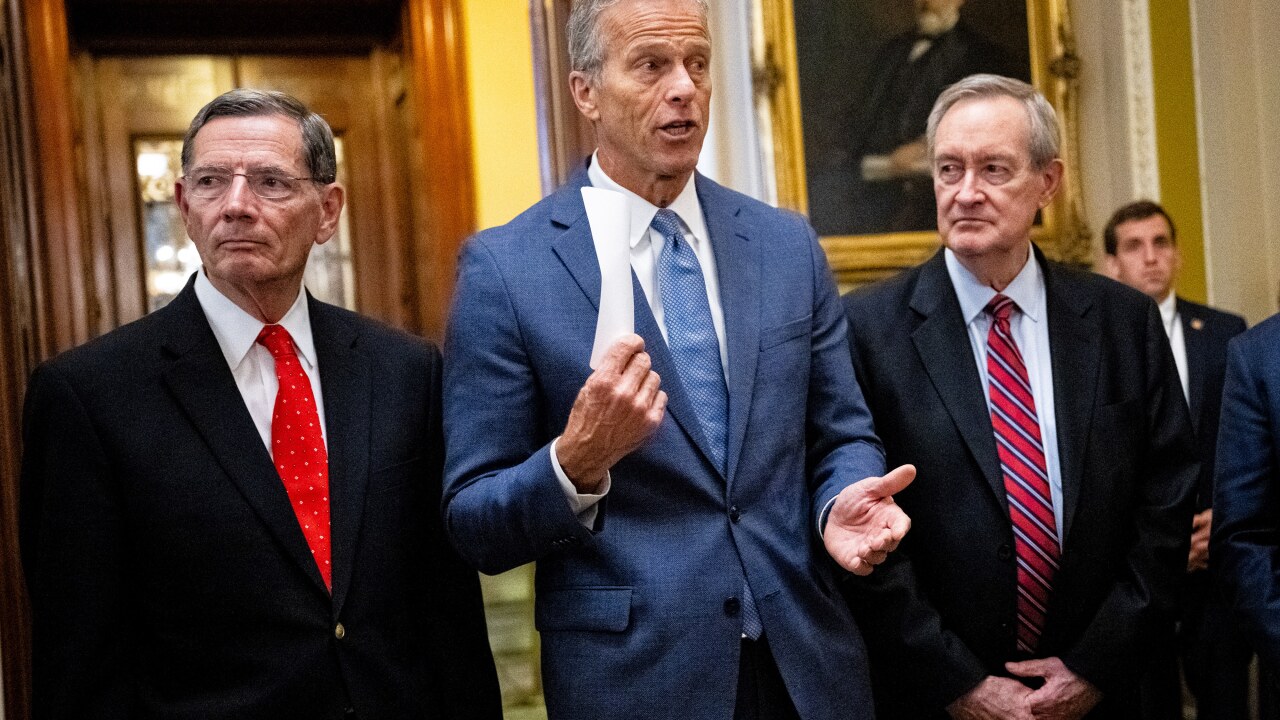
Thanks in large part to the Department of Government Efficiency, or
Reining in the federal government is an objective all Republicans should be working toward, but that's not the case for a handful of lawmakers pushing
In recent weeks, a handful of senators demanded the CCCA be attached to the cryptocurrency legislation that recently passed the Senate. Now, with that crypto bill on the other side of the Capitol, it's possible some may try to use the same playbook to force a vote in the House. Doing so would be a major policy and political mistake, and one that should be avoided.
The policy would have a harmful impact on consumers' wallets and encourage merchants to divest from advanced payments networks in favor of cheaper, less secure and less reliable alternatives. This would result in weakened cybersecurity for electronic payments, putting user data and the financial stability of millions of taxpayers at risk.
Additionally, the legislation would strip away many of the benefits and perks to which users of credit cards have grown accustomed. This would include the points and airline miles that customers earn each time they pay by card — benefits travelers find valuable. Speaking from experience, I prefer to pay with a credit card knowing I'm racking up rewards to help finance my airline travel to new destinations.
The Senate passed President Trump's tax and spending bill Tuesday, but questions around Consumer Financial Protection Bureau funding, 1071 delay and remittance taxes remain as GOP leaders scramble to pass the bill out of the House before Trump's July 4 deadline.
Congress should look at what happened fifteen years ago when it meddled in interchange markets through the Durbin amendment of the Dodd-Frank Act. That misguided law capped interchange swipe fees on debit cards. Since then,
But consumers benefited from the Durbin amendment through lower retail prices, right? Not so, according to a
At the time,
There's no denying that small businesses have felt the squeeze in recent years. Federal largesse fueled inflation, making it more expensive for businesses to procure products at the same time that local minimum wage hikes ate into profits. Small businesses have especially suffered, either forced to eat higher operating costs or pass them onto consumers through higher prices.
The best way to actually help small businesses is to get the government out of the way. Part of the solution is passing the One Big Beautiful Bill Act, which locks in lower income tax rates and creates certainty about other tax reductions. When these tax cuts are enacted into law, it will allow small businesses to keep more of what they earn so they can boost their bottom line and plan for the future. This was the recipe for success during the first Trump presidency, and with broad-based tax relief, it can help make small businesses great again.
Price controls on interchange fees or interest rates are antithetical to free market principles — and ultimately have unintended consequences. The market isn't perfect, but it is constantly evolving with new technologies and payment options. Preserving free markets is the best way to continue to offer the best options for merchants, payment processors and consumers alike. Let's learn our lesson from Dodd-Frank: Don't fix what ain't broke.






